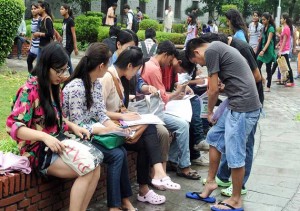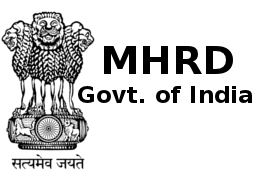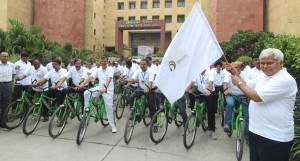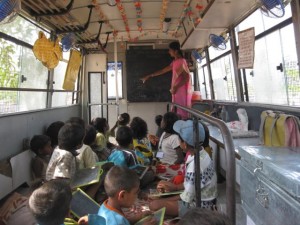Vedantu is focused on making learning more personalised and education democratised as Vamsi Krishna, CEO & Founder, Vedantu believes the education system has a direct impact in the way humans evolve and if we can make it better it can bring in evolutionary change
Give us the brief of the various reasons behind starting vedantu?
In 2006 we started our journey in education as teachers from a very small rural place in Punjab. Our first venture in education was born – Lakshya (www.lakshyainstitute.com)
Having started from a small place, we noticed that accessibility was a huge challenge in quality education. Especially, in a country like India there were severe last mile problems. We also felt from our experience that subject knowledge is secondary, what a child really wants is someone he can trust and look up to, he needs a mentor. Once this connection is formed, a teacher, apart from subject knowledge, can instil values, which should be the true purpose of education and primary role of a good teacher. So, there was a need to spread this message and create more mentors rather than subject teachers.
So, gradually we scaled our venture, found like-minded people who shared similar passion, but at the end we could only affect a small region, as there were scalability issues. This finally led us to rethink on our approach and we found our solution in Technology.
In 2012, after almost 7 years starting Lakshya and scaling it to over four location, with 60 teachers catering to over 3000 students annually, we exited our venture with a vision to start something which can touch more people and be instrumental in bringing forth a bigger change. In 2012, we sold Lakshya to a listed educational company (MT Educare, also known as Mahesh Tutorials) and set on our next educational venture. Vedantu was born then. As the name suggests ‘Veda’ + ‘Tantu’. Veda means knowledge, Tantu means connections. Vedantu translates to Knowledge Connections.
With our previous vision intact we wanted to use technology in education to bring forth a disruptive positive impact, to create more ‘Teachers by Choice‘, to make Quality education more accessible. And this is precisely the motto with which we have started on our new endeavour.
What are the various difficulties encountered in doing business on ground level?
While doing business one faces a lot of difficulties as you are starting from the scratch- from developing the concept, finances to execute the concept and to having the right resources and people to transform the concept into reality.
In India, e-learning and tutoring is still at a very recent occurrence. Parents and students in most parts of the society still believe in classroom teaching – the one-to-many model. To break this mindset and to highlight the importance and effectiveness of a personalised teaching was one of the major hurdles.
Moreover, technology in India is still at its nascent stage and we wanted to make sure that Vedantu is accessible whenever the student is in need. So, creating Vedantu’s own technology that is easy and user-friendly was another hurdle as we wanted to make sure that students faced no technical glitches while using and it also worked in low bandwidth.
What is the market size of the services offered by you in India at present?
At present India’s online education market is at $20 billion and is set to grow up to $40 billion by 2017. The rapid increase in internet connectivity has been an important catalyst for the growth of e-learning and tutoring platform in the past few years.
What are the major benefit for organisations and individuals adopting your solutions?
Education in today’s world is moving towards generality. Over the decades, classroom teaching has taken precedence that most of the teaching done in a ‘One Size Fits All’ manner, which we believe is ineffective and should change.
Vedantu as a one-to-one online tutoring platform has only personalisation for the student as its core mission. It aims at creating a platform where the student will be at the center of learning. Where a teacher will teach according to the need, pace and level of a student, where learning graduates from One-to-Many to 1-to-1, where accessibility will no longer be a challenge as the student can get the best, where a student is directly connected to a teacher and learning-teaching happens in a personalised way.
What is the Vision of your company for next two years?
We at Vedantu are focused on achieving our vision of making learning more personalised and education democratised. We really believe the education system has a direct impact in the way humans evolve and if we can make it better it can bring in evolutionary change.
For the next two years, we plan to grow our Tech backbone and bring Vedantu`s experience to mobiles or tablets. And once we establish a strong foothold in the junior grade segment then we aim to work towards vertical expansion (more subjects etc), horizontal expansion (more categories) and geographical expansion.
What are the various methods you are using to increase the visibility of your organisation?
We strongly believe in word of mouth publicity to increase the visibility of Vedantu. Our students are very satisfied with our services and generally talk about us to their friends and classmates, which helps us to expand our students’ base.
On the marketing front, we advertise with various student focused publications and are really strong in our radio and print media presence.
How you can differentiate your services from competitors?
Vedantu`s key differentiator is our market place of teachers model. While accessing Vedantu, a student-parent can browse through a list of teachers based on ratings, reviews, communicate with them (chat/talk) and accordingly choose a teacher and learn LIVE online from him. No other platform in Indian gives this end to end integrated experience.
The company’s sole mission is to create a world of learning which is both Personalised and Democratised. Personalised, in terms of better experience than groups and classes, and democratised, in choice-in terms of teacher, time, schedule and most importantly level of education.
What are the ways of engaging the customers with you? Share any special Case study?
In Vedantu students can access the site from anywhere he wants, as it will work efficiently even in low bandwidth areas. Hence, the student is constantly connected to his teacher all the time. What more is that the student can also rate and review his teacher through Vedantu as this helps in enhancing the quality of teaching that is being given out.
A student gets a personal teacher on Vedantu, the teacher not only teaches but also mentors the child. There have been cases where students from remote parts of Sikkim have connected with an IIT teacher sitting in Chennai through Vedantu. Such cases give our team lot of confidence in the power of disruption this concept can unveil.
What are the major stakeholders and sectors you are focusing on?
Currently, we are targeting students in the tier 1 and 2 cities, families where both the parents are working and cannot give much time to the child. But, eventually we do aim to extend our reach to rural areas and impart quality education to such places where accessing quality education becomes highly difficult.
Current segment focuses on standard 6th to 10th and primary for Math and science. We look forward to add more grades and subjects in near future.
What are the various initiatives taken by your organisation to emerge as a market leader?
What differentiates Vedantu from the rest is our passion for imparting quality education to students, and making them the Centre of learning. Vedantu is conceptualised to bring Personalisation back into Education. We work towards creating a space where a teacher will teach according to the need, pace and level of a student and where learning graduates from One-to-Many to 1-to-1.
For personalisation to happen, technology will definitely help, but more importantly there has to be a system free of institutions. We provide a world free of such middle layers, where a student is directly connected to a teacher and teaching- learning happens in a personalized way. Imagine a world with Knowledge Democracy. Vedantu aims to create a world of learning which is both Personalized & Democratised.
Even our name ‘Vedantu’ bears a testimony to our purpose. Veda = ‘Knowledge’ and Tantu= ‘Network’. A knowledge network where any student can tap into a teacher directly and learning can happen in a personalized way, anytime-anywhere.
To sum it up, we are betting big on the following initiatives to help us attain leadership position:
- Personalization & democratization
- Make Students the Centre of Learning
- Our unique market place model
- In-house technology
- Integrated end-to-end approach






























